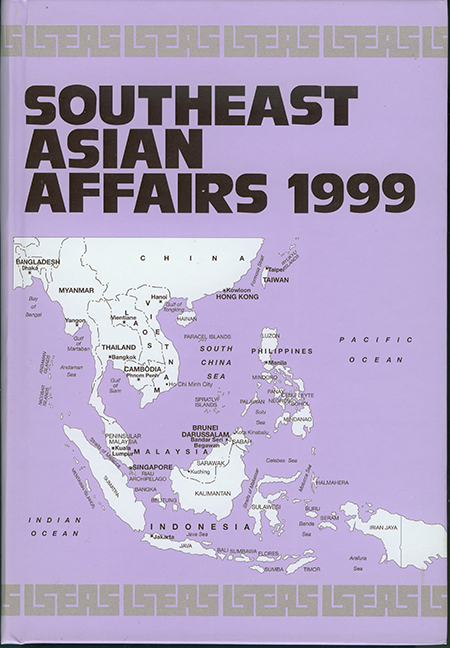Book contents
- Frontmatter
- FOREWORD
- Contents
- INTRODUCTION
- THE REGION
- Southeast Asia: Challenges to Unity and Regime Legitimacy
- The ASEAN Economic Miracle Unravels
- Greater Mekong Sub-Region and the “Asian Crisis”: Caught Between Scylla and Charybdis
- Australia's Election Year: Hansonism and the Asian Financial Crisis
- BRUNEI
- CAMBODIA
- INDONESIA
- LAOS
- MALAYSIA
- MYANMAR
- PHILIPPINES
- SINGAPORE
- THAILAND
- VIETNAM
Australia's Election Year: Hansonism and the Asian Financial Crisis
from THE REGION
Published online by Cambridge University Press: 21 October 2015
- Frontmatter
- FOREWORD
- Contents
- INTRODUCTION
- THE REGION
- Southeast Asia: Challenges to Unity and Regime Legitimacy
- The ASEAN Economic Miracle Unravels
- Greater Mekong Sub-Region and the “Asian Crisis”: Caught Between Scylla and Charybdis
- Australia's Election Year: Hansonism and the Asian Financial Crisis
- BRUNEI
- CAMBODIA
- INDONESIA
- LAOS
- MALAYSIA
- MYANMAR
- PHILIPPINES
- SINGAPORE
- THAILAND
- VIETNAM
Summary
Without doubt, future political analysts will look back at 1998 as among the more remarkable years in Australia's recent political history. It was a year which saw the dramatic success of the populist One Nation Party, led by Pauline Hanson, in the Queensland state elections. To the surprise of most commentators, no less than eleven One Nation Party candidates were elected to the Queensland Parliament in June 1998. Gaining these seats, in a parliament drawn from 89 constituencies, was a stunning result for a party that had only been founded the year before and whose only other sitting representative was Pauline Hanson herself in the Federal House of Representatives. So popular did the One Nation Party appear to be in the weeks before the federal election, held in October, that some analysts foreshadowed the possibility that it might succeed in holding the balance of power in the Federal Parliament.
Nineteen ninety-eight was also a year in which many of the presumptions held by the major players on both sides of politics of the importance of Australia's links with Asia came under question as the result of the Asian economic crisis. And it was a year that saw the re-election of the conservative Liberal-National Party coalition government that was widely seen as lacklustre at best, and deeply unpopular at worst. Moreover, and contrary to the perceived wisdom about how to win elections, the government had campaigned for re-election on a policy that included the introduction of a goods and services consumption tax (GST). This was a form of tax that the Australian electorate had firmly rejected in a previous federal election in 1993, when the Australian Labor Party (ALP), led by Paul Keating had campaigned almost exclusively on a platform opposing a GST. That all these events occurred has much to say about the strengths and weaknesses of the Australian political system.
- Type
- Chapter
- Information
- Southeast Asian Affairs 1999 , pp. 52 - 64Publisher: ISEAS–Yusof Ishak InstitutePrint publication year: 1999



